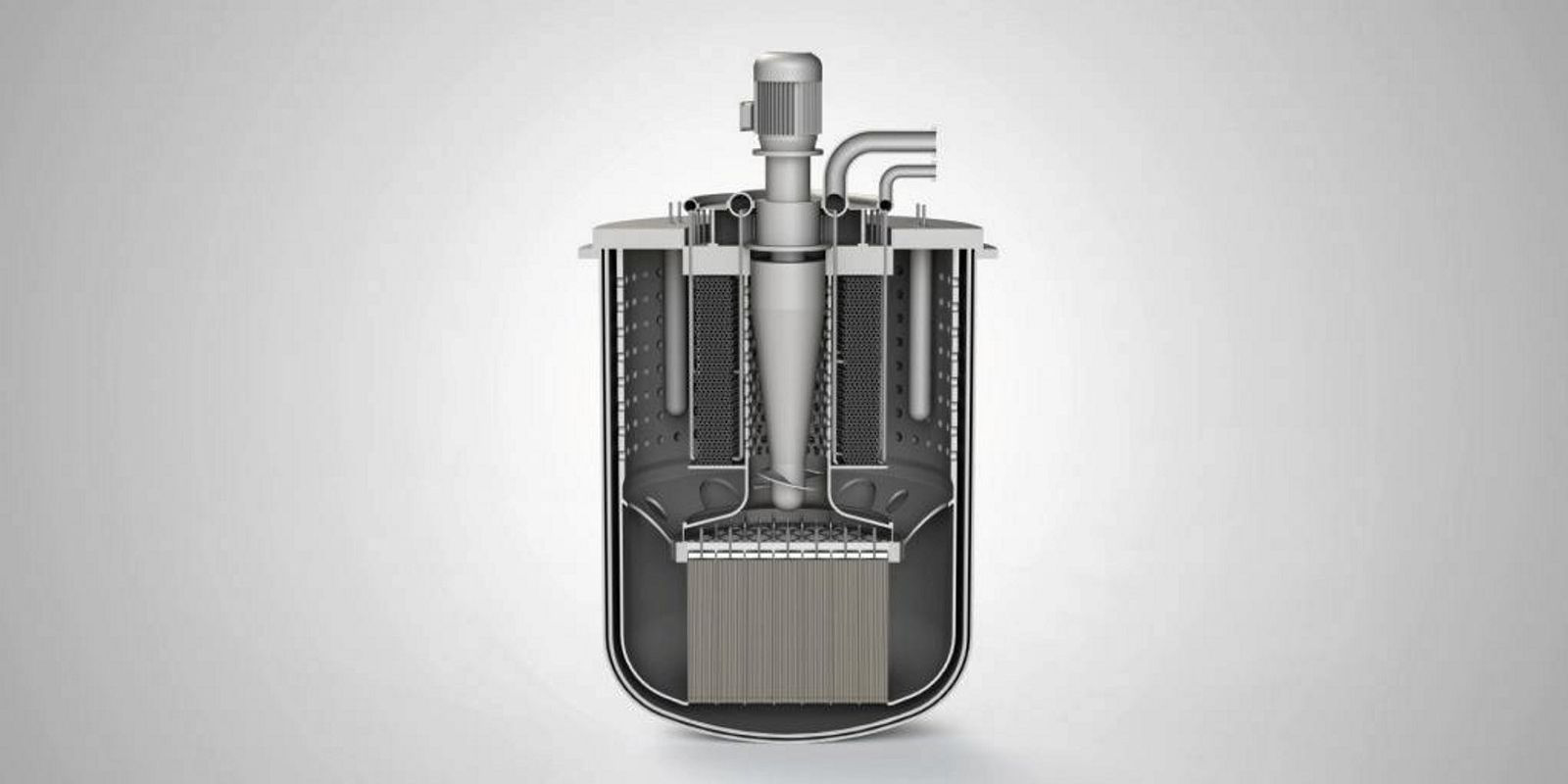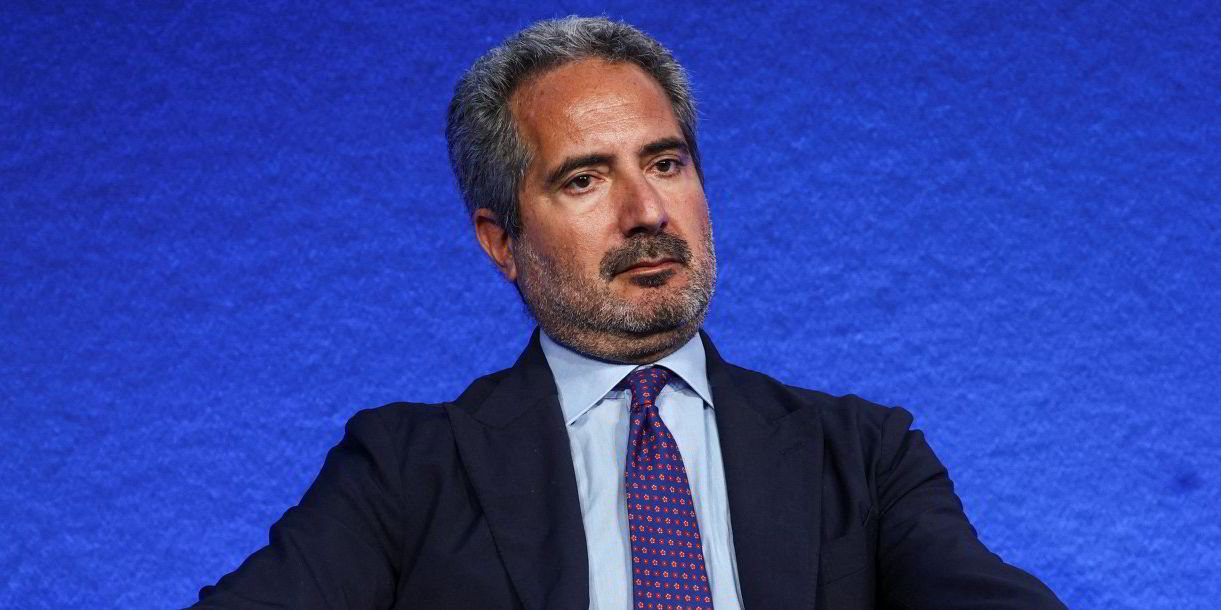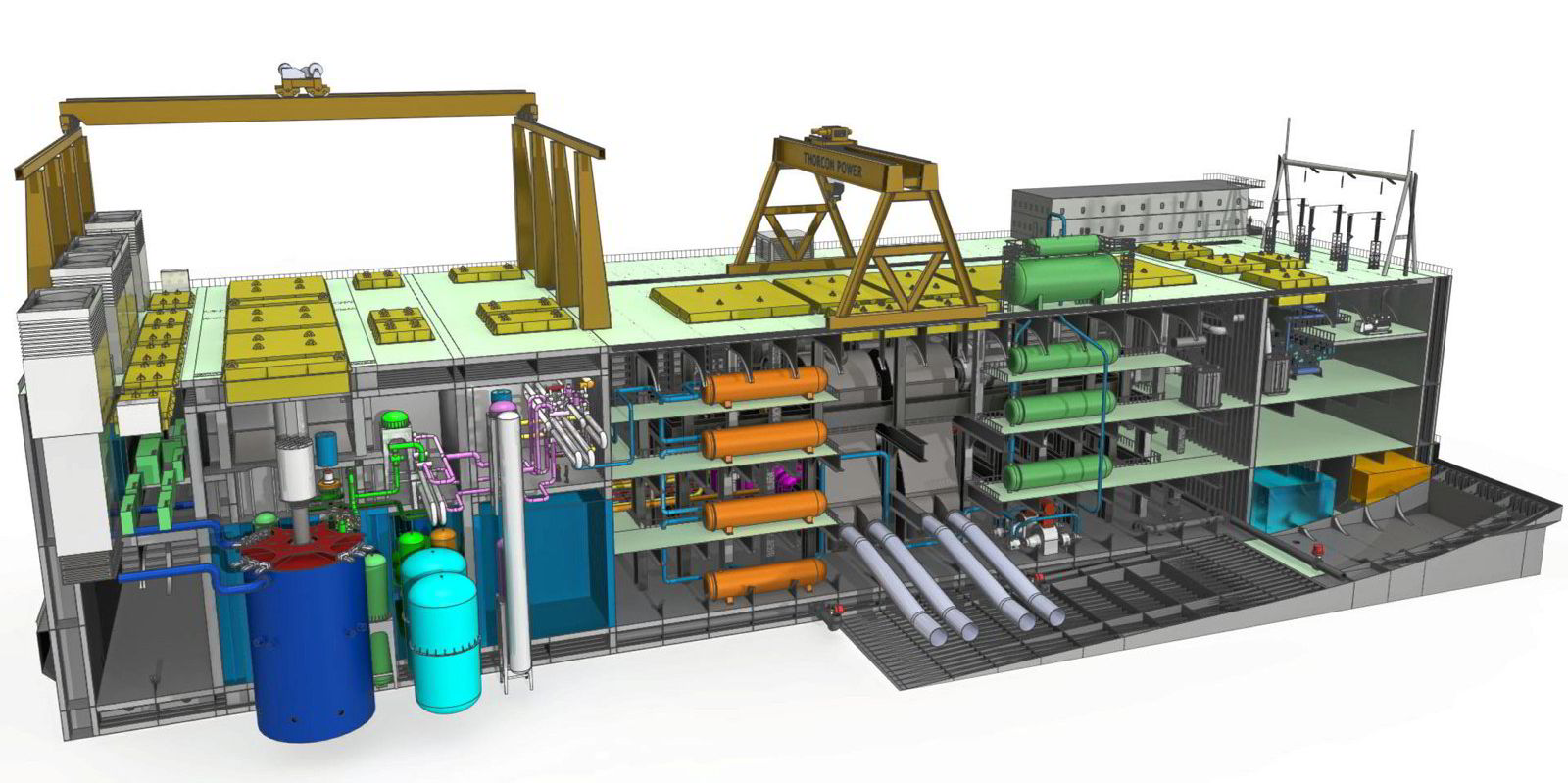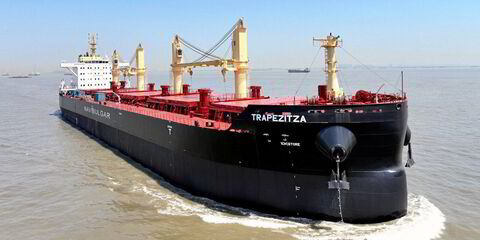Fincantieri, an Italian builder of huge cruise ships and war vessels, is looking into nuclear power as a potential form of future marine propulsion.
“Nuclear power holds enormous potential,” Fincantieri chief executive and general manager Pierroberto Folgiero said in a statement on Tuesday, announcing his company’s cooperation into the matter with classification society RINA and London-based nuclear technology company newcleo.
The three partners said in a joint statement they signed an agreement to draw up a feasibility study on “closed mini-reactor design application for use on large vessels”.
Among those applications will be newcleo’s lead-cooled small modular reactors (SMRs) technology.
SMRs involve the installation of mini reactors operating as small nuclear batteries with a 30 megawatt (MW) electric output, which would be refuelled once every 10 to 15 years.
Newcleo said it has raised €400m ($442m) since it was launched in 2021. The company specialises in developing designs for reactors fuelled with nuclear waste, such as depleted uranium, plutonium and minor actinides.
Controversial option

Some shipowners and shipping experts have been vocal lately in advocating nuclear power as a fast track to decarbonisation.
Shipping economist Martin Stopford said last year he was “quite confident” that nuclear reactors eventually will be used on bigger vessels, particularly container ships.
Despite a considerable one-off cost of about $150m for the reactor and more than $200m for the fuel, nuclear power for ship propulsion could be economically feasible, Stopford argued, considering that such large vessels could go for decades without refuelling, even leaving fuel unspent at the end of their work life.
RINA on Tuesday agreed that nuclear energy is worth exploring.
“In order to reach the targets fixed for this industry, we need alternative fuels with low carbon content from well to waste … nuclear will be one of the answers to these objectives,” RINA chairman and chief executive Ugo Salerno said in the joint statement with Fincantieri and newcleo.
Other classification societies are looking into nuclear options as well.
In December, Bureau Veritas entered an agreement with technology developer ThorCon to develop a 500-MW nuclear power barge for operation in Indonesia.
Unlike traditional nuclear reactors, ThorCon’s molten salt fission reactor and hull unit is to operate at low pressure and use liquid fuel.
Last September, the US Department of Energy awarded a contract to the American Bureau of Shipping to research the barriers to the introduction of advanced nuclear propulsion on commercial vessels.
Even though it has been used on warships and submarines after World War II, nuclear energy remains controversial with the wider public, as well as among shipping experts who believe that nuclear-powered ships are not viable.
Stand.earth shipping campaign director Kendra Ulrich earlier this year raised questions about putting reactors on board ships, citing potentially enormous costs and big regulatory question marks.
“It takes 10 years to build the average nuclear reactor. That are cost overruns into the billion dollars building nuclear reactors,” Ulrich said.





